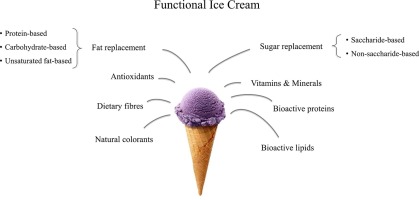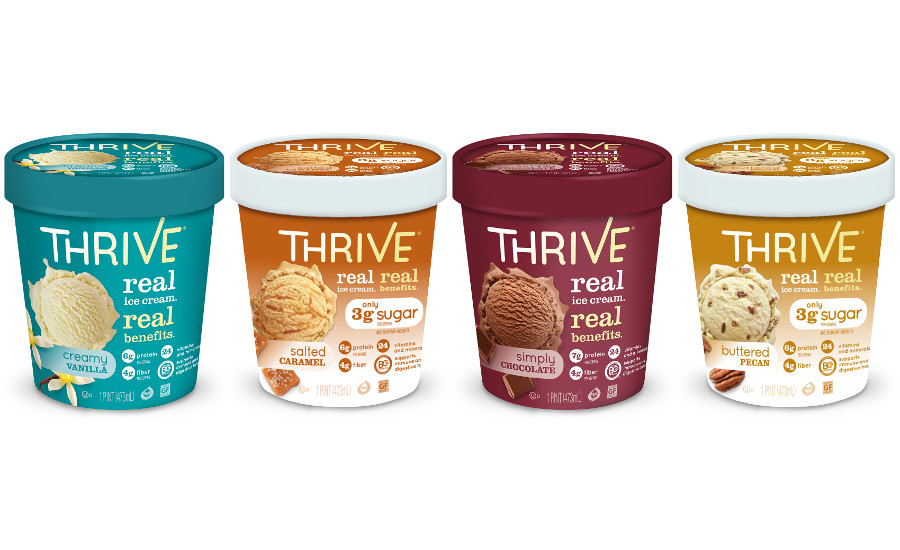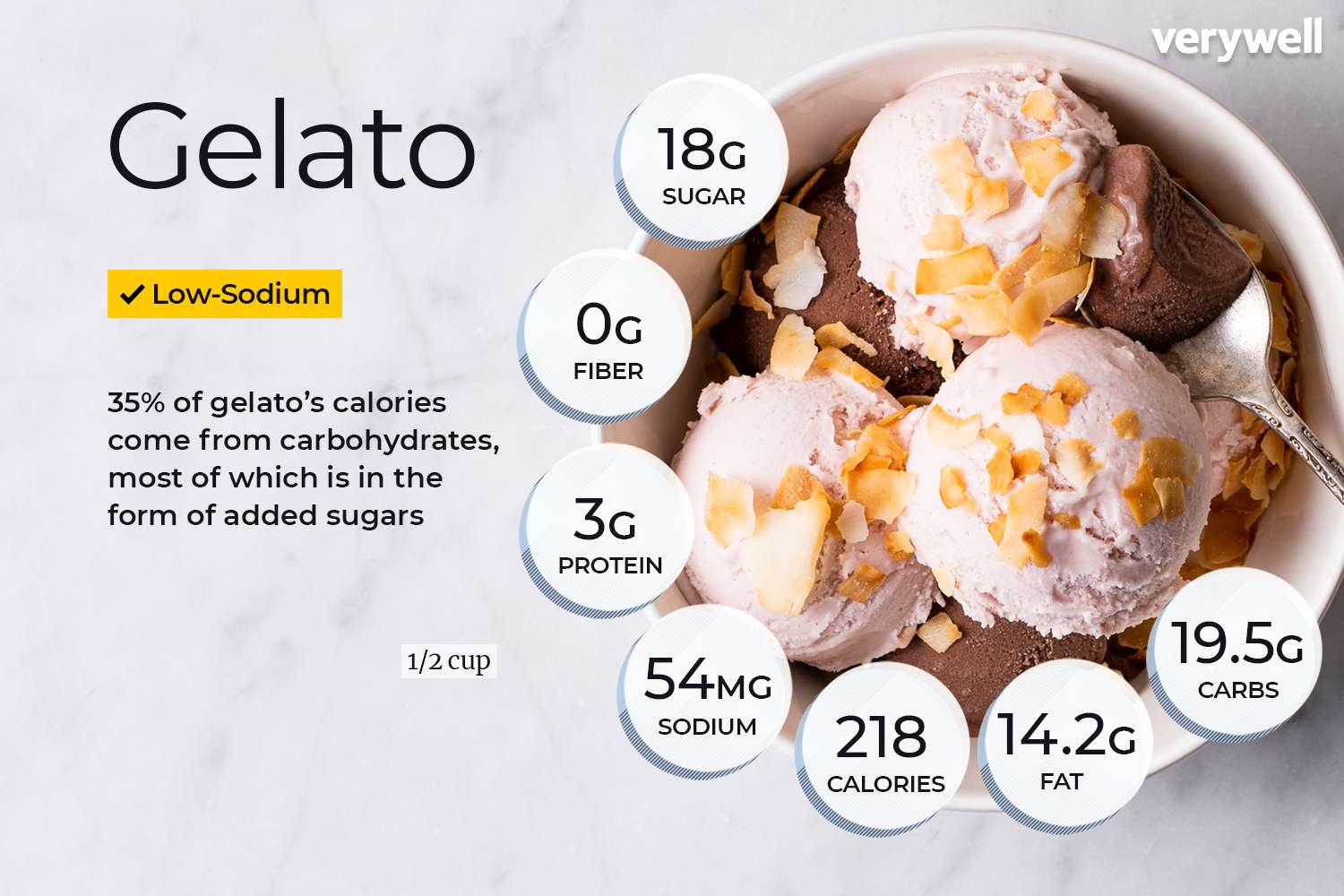Introduction

Ice cream is a beloved treat enjoyed by people all over the world. Its creamy texture and delicious flavors make it a popular dessert choice. However, when it comes to nutrition, many people wonder about the protein content of ice cream. Protein is an essential nutrient that plays a crucial role in various bodily functions, including muscle growth and repair. In this article, we will explore the nutritional facts of ice cream and shed light on whether it contains protein. We will also discuss the importance of protein in ice cream and the health benefits associated with consuming protein-rich ice cream.
The Popularity Of Ice Cream And Its Nutritional Content
Ice cream is a beloved dessert enjoyed by people of all ages around the world. Its creamy texture and indulgent flavors make it a go-to treat on hot summer days or for a late-night snack. However, it’s important to be mindful of its nutritional content. Most commercial ice creams are high in calories and added sugars, while being low in essential nutrients. While ice cream can be enjoyed occasionally as part of a balanced diet, it’s crucial to keep portion sizes in check and opt for healthier alternatives when possible.
Understanding The Importance Of Protein In A Diet
Protein is a crucial component of a healthy diet, playing a vital role in various bodily functions. It is responsible for building and repairing tissues, supporting the immune system, and producing essential enzymes and hormones. Protein is especially important for muscle growth and maintenance, making it essential for athletes and individuals looking to build strength. Additionally, protein helps to regulate appetite, promoting feelings of fullness and aiding in weight management. Including adequate protein sources in your diet is essential for overall health and wellbeing. [3]
Ice Cream Nutrition Facts

Ice cream is a popular dessert enjoyed by many, but it’s important to understand its nutritional content. A half-cup serving of vanilla ice cream typically contains about 2.3 grams of protein. In addition, ice cream is a good source of calcium, providing about 8% of the recommended daily intake. However, it is also high in calories and saturated fat, so portion control is key when indulging in this treat. It’s important to balance the enjoyment of ice cream with a well-rounded, nutritious diet.
Overview Of Ice Cream Nutrition
Ice cream is a delicious treat enjoyed by many, but it is important to understand its nutritional content. While ice cream does contain some beneficial nutrients, such as calcium, it is also high in calories, added sugars, and saturated fats. A half-cup serving of vanilla ice cream typically contains around 2.3 grams of protein, providing a small amount of this essential nutrient. However, it is crucial to consume ice cream in moderation as part of a balanced diet to avoid excessive calorie and fat intake.
Protein Content In Various Ice Cream Flavors
The protein content in ice cream can vary depending on the flavor. While traditional flavors like vanilla and chocolate generally contain around 2.3 grams of protein per half-cup serving, certain flavors may have higher or lower protein content. For example, flavors like cookies and cream or cookie dough may have slightly higher protein content due to the inclusion of cookie pieces or dough, which can contain small amounts of protein. On the other hand, fruit-flavored ice creams may have lower protein content compared to traditional flavors. It is important to check the nutrition label for specific protein content information when selecting different ice cream flavors.
Does Ice Cream Contain Protein?

Ice cream does contain protein, although the amount can vary depending on the flavor and brand. Traditional flavors like vanilla and chocolate typically contain around 2 to 3 grams of protein per half-cup serving. However, there are also high-protein ice cream options available that have added protein. These varieties can contain higher amounts of protein, usually ranging from 12 to 20 grams per serving. So, while ice cream is not typically a significant source of protein compared to other foods, there are options available for those looking to increase their protein intake while enjoying a frozen treat.
Exploring Whether Ice Cream Contains Protein
Ice cream does indeed contain protein, although the amount can vary depending on the flavor and brand. Traditional flavors like vanilla and chocolate typically contain around 2 to 3 grams of protein per half-cup serving. However, there are also high-protein ice cream options available that have added protein. These varieties can contain higher amounts of protein, usually ranging from 12 to 20 grams per serving. While ice cream may not be a significant source of protein compared to other foods, it can still contribute to your overall protein intake.
Comparing Protein Levels In Different Ice Cream Brands
When it comes to the protein content in ice cream, it’s important to note that different brands may offer varying levels. While traditional flavors like vanilla and chocolate typically contain around 2 to 3 grams of protein per half-cup serving, there are high-protein ice cream options available from various brands that offer a greater protein content. These brands often include added protein, with levels ranging from 12 to 20 grams per serving. To ensure you’re getting the desired protein intake, it’s essential to check the nutritional labels and compare protein levels among different ice cream brands.
Importance Of Protein In Ice Cream

Protein plays a crucial role in ice cream, contributing to its overall texture and structure. It helps with emulsification, creating a smooth and creamy mouthfeel. Additionally, protein acts as a stabilizer, helping to prevent ice crystal formation and maintain a stable structure. The presence of protein also enhances the nutritional value of ice cream, as it is an essential component of a balanced diet. Including protein in ice cream can not only provide a satisfying treat but also offer a source of this important macronutrient. So, the presence of protein in ice cream is not only beneficial for its quality but also for its nutritional content.
Understanding The Role Of Protein In Ice Cream
Protein plays a crucial role in ice cream, contributing to its overall texture and structure. It helps with emulsification, creating a smooth and creamy mouthfeel. Additionally, protein acts as a stabilizer, helping to prevent ice crystal formation and maintain a stable structure. The presence of protein also enhances the nutritional value of ice cream, as it is an essential component of a balanced diet. Including protein in ice cream can not only provide a satisfying treat but also offer a source of this important macronutrient. So, the presence of protein in ice cream is not only beneficial for its quality but also for its nutritional content. [19]
Effects Of Protein On Taste And Texture
Protein not only plays a structural role in ice cream but also has a significant impact on its taste and texture. The presence of protein contributes to a creamy and smooth mouthfeel, enhancing the overall sensory experience of eating ice cream. Protein helps to create a rich and indulgent texture, giving ice cream its desirable characteristics. Additionally, the presence of protein can enhance the flavor of ice cream, adding depth and complexity. Therefore, protein is not only essential for the structural integrity of ice cream but also for its overall taste and texture. [19] [22]
Health Benefits And Considerations

Health Benefits and Considerations: While ice cream may not be the healthiest food choice, it does have some potential health benefits. Consuming ice cream that is rich in protein can help promote muscle growth and repair. Additionally, the calcium in ice cream can contribute to bone health. However, it is important to be mindful of portion sizes and the overall nutritional content of the ice cream, as it is often high in calories, sugar, and saturated fats. Individuals with dietary restrictions such as lactose intolerance or allergies should also consider alternative options or choose lactose-free or dairy-free ice cream. A balanced approach is key to enjoying ice cream as part of a healthy diet. [24]
Health Benefits Of Consuming Protein-rich Ice Cream
Consuming protein-rich ice cream can provide several health benefits. Protein is essential for building and repairing muscles, and including it in ice cream can help promote muscle growth. Additionally, protein can increase satiety, keeping you feeling fuller for longer and potentially aiding in weight management. Protein also plays a role in immune function and hormone regulation. By choosing ice cream that is high in protein, you can enjoy the indulgence while also benefiting from these nutritional advantages. It is important to note that moderation and balance are key when incorporating protein-rich ice cream into a healthy diet.
Considerations For Individuals With Dietary Restrictions
Individuals with dietary restrictions need to be mindful when consuming ice cream. For those who are lactose intolerant, there are lactose-free or non-dairy options available. Vegan ice creams made from plant-based milk alternatives can be suitable for individuals following a vegan or dairy-free diet. Additionally, individuals with allergies to ingredients commonly found in ice cream, such as nuts or gluten, should carefully read labels to ensure the product is safe for consumption. It’s important for individuals with dietary restrictions to choose ice creams that meet their specific dietary needs to avoid any adverse reactions or discomfort.
Conclusion

In conclusion, ice cream is not a significant source of protein. While it does contain a small amount of protein, its primary nutritional profile consists of carbohydrates and fats. Therefore, individuals seeking a protein-rich diet should look to other sources such as lean meats, poultry, fish, legumes, and dairy products. However, ice cream can still be enjoyed in moderation as part of a balanced diet. It’s important to consider individual dietary restrictions and choose ice creams that align with specific needs. Ultimately, incorporating a variety of nutrient-dense foods is essential for maintaining a healthy lifestyle.
Summary Of Findings And Recommendations
Based on the exploration of ice cream nutrition, it is evident that ice cream is not a significant source of protein. While it does contain a small amount, its primary nutritional profile consists of carbohydrates and fats. Therefore, individuals seeking a protein-rich diet should look to other sources. However, ice cream can still be enjoyed in moderation as part of a balanced diet. It is important to consider individual dietary restrictions and choose ice creams that align with specific needs. Incorporating a variety of nutrient-dense foods is essential for maintaining a healthy lifestyle. [31] [32]
A Balanced Approach To Including Ice Cream In A Healthy Diet
Including ice cream in a healthy diet can be achieved through a balanced approach. While ice cream is not a significant source of protein, it can still be enjoyed in moderation as part of a balanced diet. This means being mindful of portion sizes and choosing ice creams that are made with quality ingredients. Opting for options that are lower in added sugars and calories can also contribute to a healthier overall diet. It is important to remember that ice cream should be consumed in moderation and as part of an overall nutrient-rich eating plan.
FAQ: Does Ice Cream Have Protein?
Q: Does ice cream contain protein?
A: Yes, ice cream does contain protein, but the amount can vary depending on the specific type of ice cream and its ingredients.
Q: Which ingredients in ice cream contribute to its protein content?
A: The main ingredient in ice cream that provides protein is typically milk or cream, which are both dairy products known for their protein content. However, the protein content can be influenced by other ingredients such as additional milk solids or protein-rich add-ins like nuts or seeds.
Q: How much protein does ice cream generally contain?
A: The protein content of ice cream can vary widely depending on the brand, flavor, and specific recipe. As a general guideline, a serving of ice cream (around 1/2 cup or 125 ml) can contain anywhere from 2 to 5 grams of protein. It is essential to read the nutritional information on the ice cream packaging for accurate protein content.
Q: Is the protein in ice cream beneficial for health?
A: While ice cream does contain protein, it is important to note that it is often accompanied by high amounts of sugar and fat. Therefore, the overall health benefits of the protein in ice cream can be outweighed by the negative effects of excessive sugar and fat consumption. Moderation is key when enjoying ice cream as part of a balanced diet.
Q: Are there any alternatives for people looking for higher protein content in their frozen treats?
A: Yes, there are several alternatives available in the market for those seeking ice cream with a higher protein content. Some brands offer “protein ice creams” that are specifically formulated to contain a higher proportion of protein while still providing a similar taste and texture to traditional ice cream. Moreover, you can also experiment with making homemade frozen yogurt or protein-rich smoothies using ingredients like Greek yogurt or protein powder.
Q: Can individuals with lactose intolerance or dairy allergies consume ice cream for protein?
A: People with lactose intolerance can opt for lactose-free or dairy-free ice cream options, such as those made from plant-based milks like almond, soy, or coconut milk. There are also various non-dairy frozen desserts available in the market that provide alternatives for individuals with dairy allergies or sensitivities while still offering some protein content.
Please note that for specific dietary needs or concerns, it is always best to consult with a healthcare professional or a registered dietitian for personalized advice.

Soo Good Snack Bar is an upscale snack shop located at 1309 Hermosa Ave. in Hermosa Beach, CA. This family-owned business is the newest addition to the community of Hermosa, and our goal is to create a fun and inviting place where families can enjoy delicious snack foods that fit the beach lifestyle. Check us out today and help yourself to happiness.
